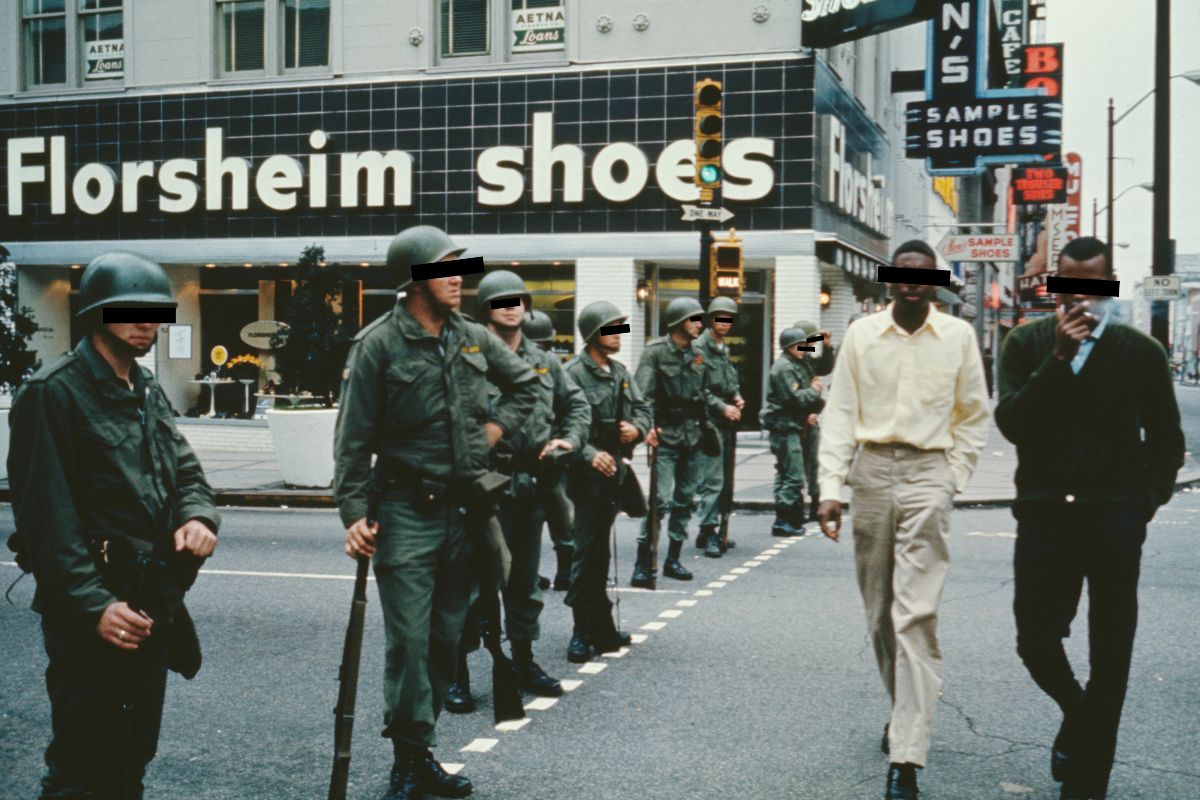Content warning: slurs.
In the last three months, there’s been a back and forth between the College Board and the Florida Department of Education/Governor Ron DeSantis. After six-plus years of development, the College Board announced the pilot course on AP African American Studies. A select few classes would take the course and give feedback ahead of the full launch in August 2024. However, Florida essentially rejected the course by stating that it “lacks educational value.”
After a series of misspelled press releases on Florida’s stance on Black history, other states also began following suit. In an effort to appease the state, the College Board made significant revisions to the curriculum and later tried to claim they weren’t bowing to pressure.
What’s in and what’s out
Because the College Board released the syllabus publicly, and the original was leaked, it’s easy to verify exactly what was removed. The course is split up into four sections: Origins of the African Diaspora; Freedom, Enslavement and Resistance; The Practice of Freedom; and Movements and Debates. The College Board wholly reworked the last section. Among many other things, it removed mentions of systemic marginalization. A long list of suggested readings hand-picked by Black scholars—which were just that, suggestions—were demanded to be removed. Almost every single author removed was LGBTQ+, a woman, or both.
In addition to personal beliefs, Florida cited the Stop WOKE Act and Don’t Say Gay Bill as justification for this rejection. Some claimed to take issue with the curriculum because it is college-level reading and, therefore, inappropriate, despite that the whole point of AP courses is that they’re intended to be college-level courses. (All the while actively trying to purge this reading from college, too.)
While college is semi-optional and for adults, high school reading is for everyone. The thing is, this class is optional, as it’s for AP students. Also, passing the AP exam is equivalent to college credit because it’s a college class. These are the on-paper facts. However, in actuality, conservatives don’t want people with overlapping marginalization to find commonality and realize that different isms don’t exist in a bubble. Well, that and the desire to erase anyone that doesn’t fit their narrow definition of people worth remembering in history.
When Black history is watered down and white-washed, there are usually two major frustrations. One is that the tools of oppression will be used repeatedly because we cannot recognize the tools/tactics of white supremacy, and the other is that this limits Black history to slavery, then slavery’s end (don’t ask why, though), then Civil Rights and then the first Black president.
This creates the illusion of an inevitable correction and progress in history. It implies we can be passive people in history because good will prevail regardless. (This is not unlike certain religious beliefs.) It also propagates the belief that these issues existed in the past, and then everyone either agreed to fix them or faded into history—unlike reality, where the agenda of the opposition has continued, both in new ways and through long-running systemic issues.
An equally harmful narrative is that there were have been no meaningful dissidents effecting change—exceptions include a handful of Black people reduced to a chapter of their entire life, and the only issues portrayed as worth speaking up for involve physical violence—well, unless that violence is perpetrated by the military, police, or a person protecting private property.
Black conservatives
There is one update to the curriculum that was praised by conservatives that shows a real lack of understanding of basic Black history, and that’s the inclusion of Black conservative thought as a separate unit. To assume that these ideas (especially pre-Civil Rights) would not be included in the discussions of Black American History is very paternalistic at best and bordering on some other isms at worst. Black people are not a monolith but have achieved success through coalition building on the basis of class and our Blackness. Many sections of the curriculum feature and encourage differing opinions—especially post-slavery and post-Civil Rights Act.
The burgeoning of what many consider Black (American) conservatism came with Booker T. Washington, and really, it bloomed around the same time as the concept of Black American identity, a.k.a. the New Negro movement. Booker was mentioned in the original curriculum three times. Most high-profile Black conservatives today are grifters and the kind of people Ron DeSantis, Fox News, and the Daily Wire will call on when needed. Very few Black conservatives exist today (outside of the contemporary Democratic Party) because there is little policy and substance to wanting to hold onto the past as a Black person.
This doesn’t mean that every high-profile Black person is liberal or apolitical. Most Black conservative values are held up by very rich Black capitalists, but they will rarely align themselves with capital “r” Republicans. They buy into the bootstrap mythos but stop short of advocating for overt racists unless there’s a tax cut that will benefit them personally.
Florida should not be the focus
Lots of this news feels of this moment. It comes after years of attacks on the 1619 Project (which, to be clear, is very different) and the summer of 2020, which was the closest to a moment of racial reckoning in the U.S.A. in decades. However, this course has been developing since 2017. If you somehow take away the last seven years (which, some argue, begins with the backlash of the Super Bowl 50 halftime show and not the 2016 election), many of the criticisms of this curriculum still would’ve happened. For one, most American History courses already stop at the Civil Rights movement of the ’60s. That’s what Jesse Watters of Fox and Friends advocated for:
It’s a very good course. Three-quarters of it is very rigorous and very good and this is very high-level stuff. And then you get to about 1960 in here and it’s all activism. It’s all ideology. It’s no history. A good chunk is really good stuff, and then it goes into white supremacy, patriarchy, abolish the prisons, overthrow capitalism, queer theory, intersectionality. And you’re like, “Woah, we were going pretty good here!” And then boom, it hits you with all that stuff.
When I graduated high school a decade ago, I thought the skip from WW2 to two days of Civil Rights as the term ended was always something of a timing issue. After all, teachers have to prep us for state testing, and then there’s the AP test. When learning about the Vietnam and Korean War in college, I realized that condensing through the last half-century was a deliberate choice. (At that point, I only knew about these wars due to my grandfather having one of “those hats,” Forrest Gump, and Mad Men.) I realized this because my professor offered alternative assignments to veterans in the class during those sections. We would be looking at videos and images that could trigger their PTSD and he wanted to make sure they got the material in a sensitive manner.
When teachers, legislatures, and anti-education activist groups act like touching anything past the 1950s is like touching fire, they are responding to a moment in time in which they and/or their parents lived—in which they were likely either passive participants in oppression or, in some cases, active resistors to human rights for all. When they whitewash Civil Rights and end on a taken-out-of-context Martin Luther King Jr. as the bringer of equality, there can’t possibly be anything to complain about in the present. (Or a reason to bring up the class solidarity spearheaded by the Black Panthers and Black feminist writers.) Racism and sexism solved. Anything left behind, in their eyes, is individualized or, in some cases, not “really” a problem. (Like homophobia, transphobia, etc.)
It also disconnects more from the understanding that before “wokies,” people who criticized injustice in the status quo are almost never revered. They got slapped with other pejoratives likes snowflake, social justice warrior, PC police, bleeding heart liberal, commie, tree-hugging hippie, troublemaker, or n*gger-lover. One day, “woke” will seem as old-fashioned as these, and society will have a bunch of new words in its place.
(featured image: Santi Visalli/Archive Photos/Getty Images, edited by Alyssa Shotwell)










Published: Mar 17, 2023 04:52 pm